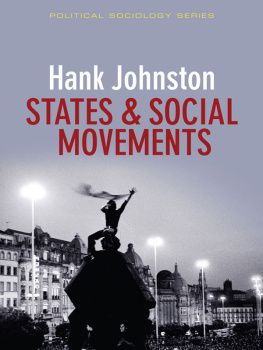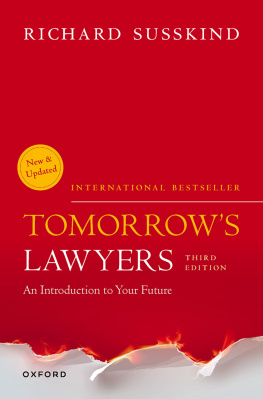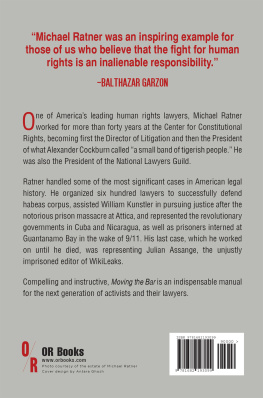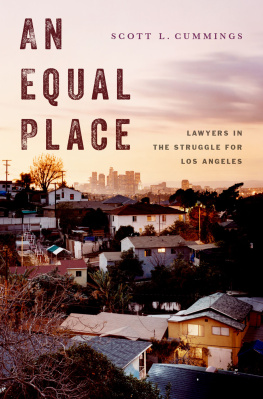Contents
Guide
Pagebreaks of the print version
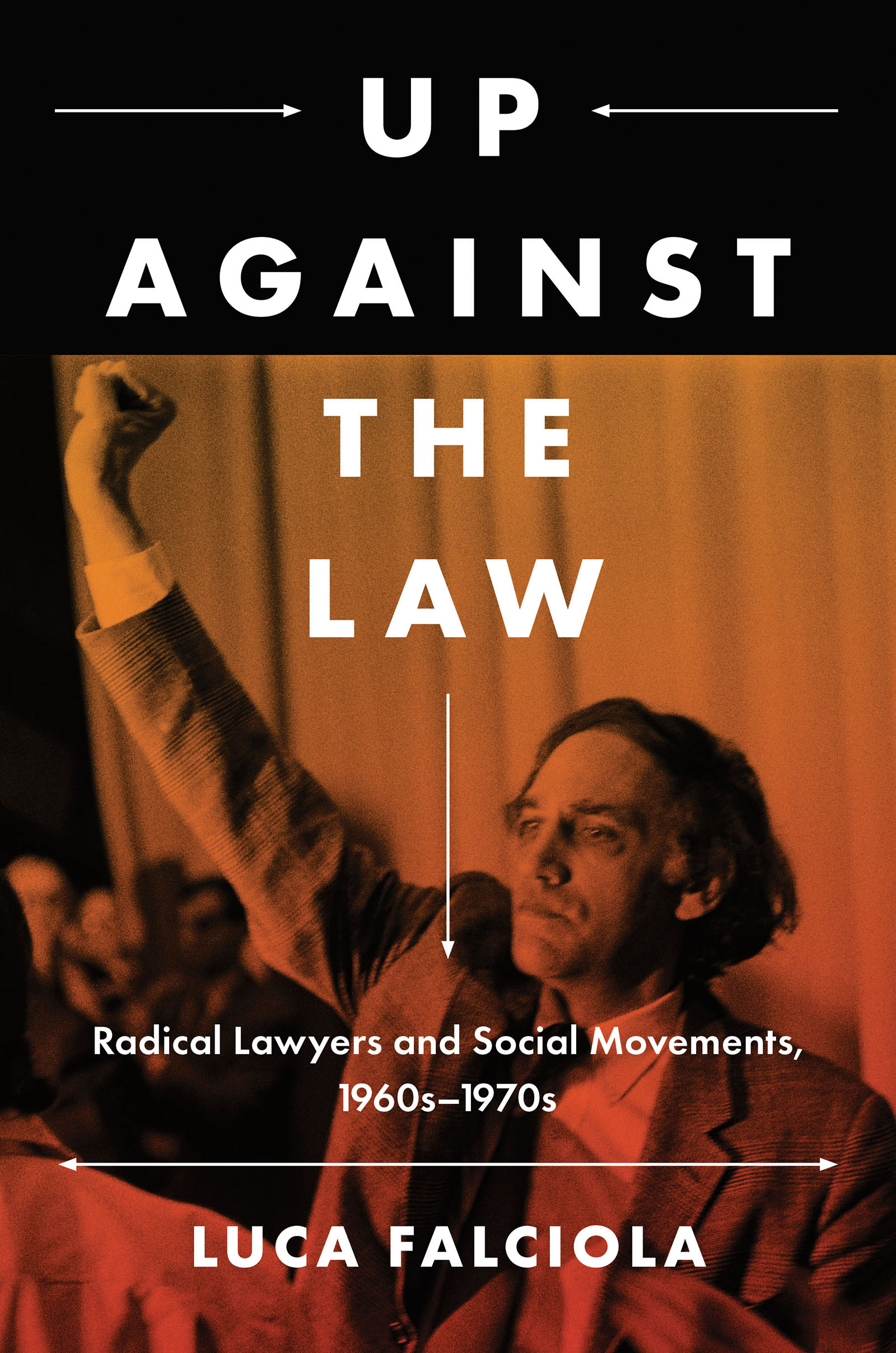
Up Against the Law
Justice, Power, and Politics
COEDITORS
Heather Ann Thompson
Rhonda Y. Williams
EDITORIAL ADVISORY BOARD
Peniel E. Joseph
Daryl Maeda
Barbara Ransby
Vicki L. Ruiz
Marc Stein
The Justice, Power, and Politics series publishes new works in history that explore the myriad struggles for justice, battles for power, and shifts in politics that have shaped the United States over time. Through the lenses of justice, power, and politics, the series seeks to broaden scholarly debates about Americas past as well as to inform public discussions about its future.
More information on the series, including a complete list of books published, is available at http://justicepowerandpolitics.com/.
Up Against the Law
Radical Lawyers and Social Movements, 1960s1970s

LUCA FALCIOLA
The University of North Carolina Press Chapel Hill
2022 Luca Falciola
All rights reserved
Set in Charis by Westchester Publishing Services
Manufactured in the United States of America
The University of North Carolina Press has been a member of the Green Press Initiative since 2003.
Complete Library of Congress Cataloging-in-Publication Data for this title is available at https://lccn.loc.gov/2022015994.
ISBN 978-1-4696-7028-7 (cloth: alk. paper)
ISBN 978-1-4696-7029-4 (pbk.: alk. paper)
ISBN 978-1-4696-7030-0 (ebook)
Cover illustration: William Kunstler at the University of Cincinnati, 1969 (Ken Hawkins/Alamy Stock Photo).
To Silvia and her radical joy of living
Contents
Up Against the Law
Introduction
A press photo, May 1968: A young law school graduate has been severely clubbed by police during a student demonstration at San Francisco State College. Blood leaks from the wounds onto his clean-shaven face and his newly purchased professional suit. Through the gore he yells at police.
A video recording, circa 1969: After addressing a theater full of radical students with an inflammatory speech, a long-haired, scruffy lawyer salutes the crowd. Clenching his fist, he shouts, All power to the people. Right on! He receives a thunderous standing ovation.
An intelligence dispatch, 1970: FBI director J. Edgar Hoover informs a special agent that a lawyer is in reality the leader of the Black Panther Party although he does not identify himself as such. Hoover also requests that this person be placed on the list of the most dangerous subversive individuals.
A best-selling bookSoledad Brother1970: George Jackson, a Black Panther icon and the author of the book, makes multiple references to his favorite person. This person is actually his lawyer, who has fallen in love with him, worked tirelessly for his release, arranged for the publication of his famous epistolary, and organized one of the most vocal defense committees ever seen.
A California newspaper, August 1971: A young lawyer faces charges of smuggling a gun into San Quentin prison just before George Jacksons ill-fated jailbreak. Hounded by the FBI and fearing for his life, he would go into hiding, leave the country, and remain underground for thirteen years.
A lawyers memoir, 1994: I felt that these men, societys outcasts, were my people, my constituents. I wanted to demonstrate that I was with them completely and that I recognized the significance of this moment. I wanted them to know I was not just another lawyer with a briefcase saying, Ill do the best I can. I wanted them to know that I was willing to go to the wire for them.
______
Fragmentary sources such as these are enough to give a glimpse of a phenomenon as much significant as overlooked: during the 1960s and 1970s, lawyers and social movements wove profound, intricate, and multifaceted relationships. While a generation of Americans were exploring the outer reaches of protest, scores of lawyers put their hearts and souls into radical causes. They made themselves and their skills available to activists and militants of any kind, in the most diverse circumstances, not only in the courtrooms but also in the streets, behind prison walls, around military bases, on picket lines at work sites, on university campuses, across destitute neighborhoods, and within Indian reservations.
And yet the observers and scholars who have examined those two decades of widespread political mobilization have generally focused on other social actors, such as students, racial and sexual minorities, workers, and soldiers. When lawyers enter the picture, they are often granted only a secondary part, hovering in the background, filing lawsuits from their downtown offices, or escorting their clients to arraignments in their formal attire.
To be sure, some studies have maintained that lawyers play a crucial role in social movements and have connected this phenomenon to both the legalistic spirit of the American people and the structural design of the common-law system. Following Alexis de Tocqueville, many commentators have stressed the salience of law and the centrality of attorneys in U.S. culture.
From a different perspective, critics of legalism have argued that social change in the United States is primarilyand almost exclusivelyconceived within institutional and conventional channels. Political scientist Stuart Scheingold identified the existence of a myth of rights, wherein citizens associate moral conduct with rule following, cherish the idea of freedom under the law, and constantly overrate the progressive capacity of the law. As politics must be conducted in accordance with the law, every political issue tends to become a legal issue.
Certainly, such an underlying nexus between law and society helps to explain why lawyers and movements have been so deeply interwoven, especially in periods of sweeping reformism. And yet many of the lawyers who participated in the social struggles of the 1960s and 1970s rarely saw the law as a means to redress social issues and strove for a fundamental change of power relationships. While offering representation to activists and insurgents, they identified with their clients, including the most controversial ones, and they challenged their professional standards, including the most revered ones. In the process, these lawyers altered their priorities and transformed their habits. They used the courtrooms as political arenas and developed new strategies of litigation. Their presence alongside activists and militants was pervasive not onlyand quite predictablyin court but also out of court. Many of them became deeply involved with the organization of dissent, taking personal risks and endangering their own careers. By virtue of their embrace of radicalism, they also formulated a far-reaching critique of the legal system: they ended up questioning the neutrality, the color blindness, the transformative power, and, in some instances, even the intrinsic value of the law. As a result, they shook up the legal arena and simultaneously afforded social movements invaluable energies.
Since the 1970s, legal scholars and sociologists have adopted the category of cause lawyers to designate the attorneys who operated outside the mainstream practice, dedicating their efforts to the pursuit of specific political or moral commitments. However, this definition looks intrinsically loose, as it conflates lawyers who retained a strong faith in court-based reform and lawyers who were highly skeptical of litigation-centered approaches to social change. Indeed, cause lawyers could be on the Left, on the Right, or simply devoted to public interest issues that cut across political lines.


